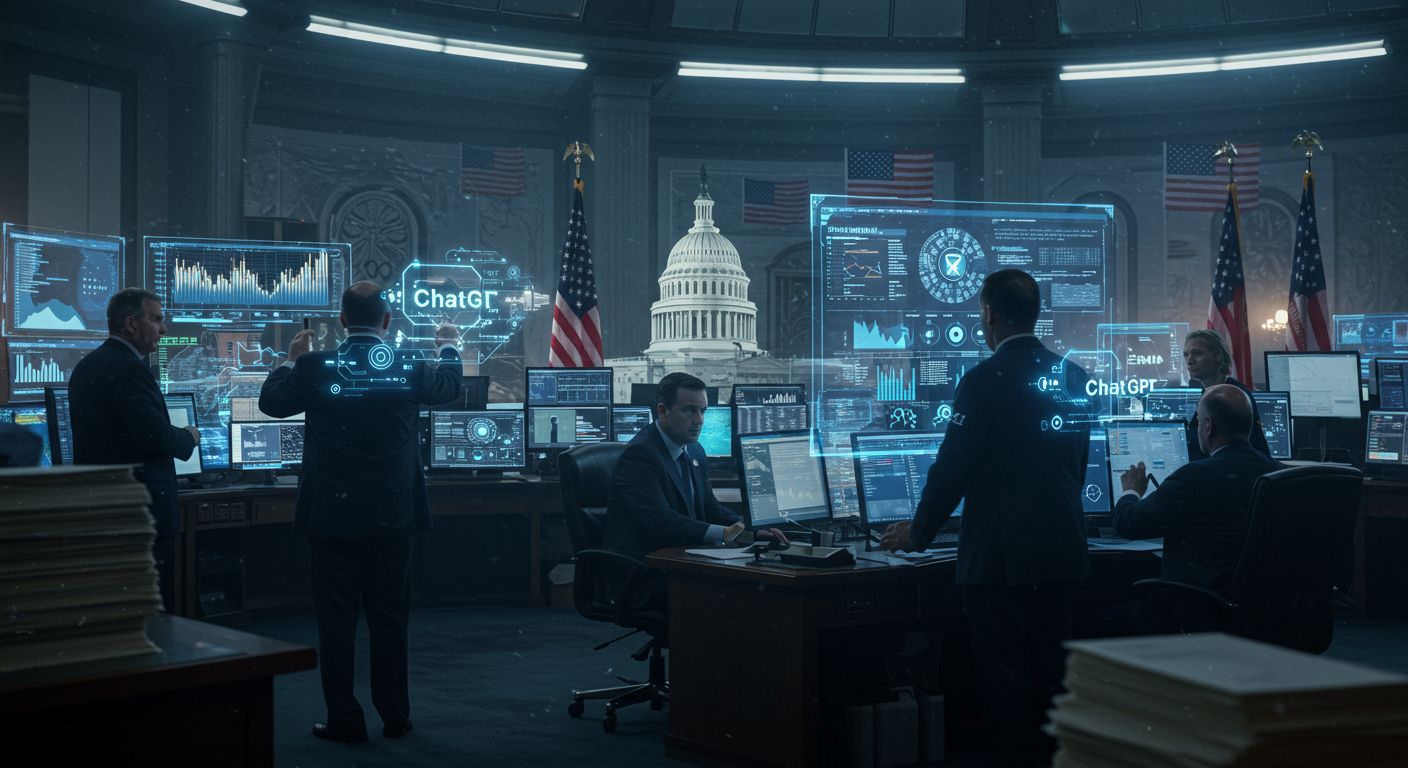Washington watches AI from the cheap seats.
When the U.S. government spends less on AI oversight than it does on office snacks, is it any wonder tech outpaces our laws? This week’s news: Congress greenlights a micro-budget AI sandbox, inviting regulators for a spin in the cockpit. But disruptive innovation doesn’t slow for government process—the big question now is whether D.C.’s penny-wise strategy can outthink an industry that’s notoriously caffeine-fueled and fast-evolving. As founders, are we ready for policy whiplash or just more red tape on the way to the future?
OpenAI’s Bold Bargain: $1 AI for the Feds
When’s the last time tech moved at government speed? OpenAI just flipped the playbook, handing the US federal government access to ChatGPT and its most advanced AI—for only a dollar. This isn’t just promotional pricing; it’s AI’s main stage debut in the heart of bureaucracy. From predictive analytics to next-level chatbots, federal workers are now piloting the same machine learning force that’s put Silicon Valley on edge. But this daring leap raises the big questions: Will AI turbocharge public sector efficiency or just amplify business as usual?
Bureaucracy vs. Breakneck Innovation
In the private sector, adopting a new tool can be as simple as a credit card swipe. In Washington? It’s a marathon of red tape. The $1 deal is supposed to break the status quo—giving agency staff an instant sandbox to play with the tech and dream up new applications. But the challenge isn’t just training models; it’s rewiring mindsets and processes deeply rooted in conservatism and compliance. Early pilots will surface surprising friction: union pushback, privacy debates, and a culture still learning to trust machines for mundane (yet crucial) government work.
The Upshot for SaaS Founders
This partnership is a rare case study for anyone building software for the enterprise—or aiming to disrupt the public sector. OpenAI’s audacious move lets government agencies move fast for once, but puts the spotlight on sweating the basics: security, transparency, responsible spend. If AI’s future in Washington means more than pilot fatigue and data hoarding, it’ll take a serious rethink—one where founders bring the patience of a civil servant and the hustle of a startup. That’s the $1 gamble.
OpenAI Announces Massive US Government Partnership
for the next year.


